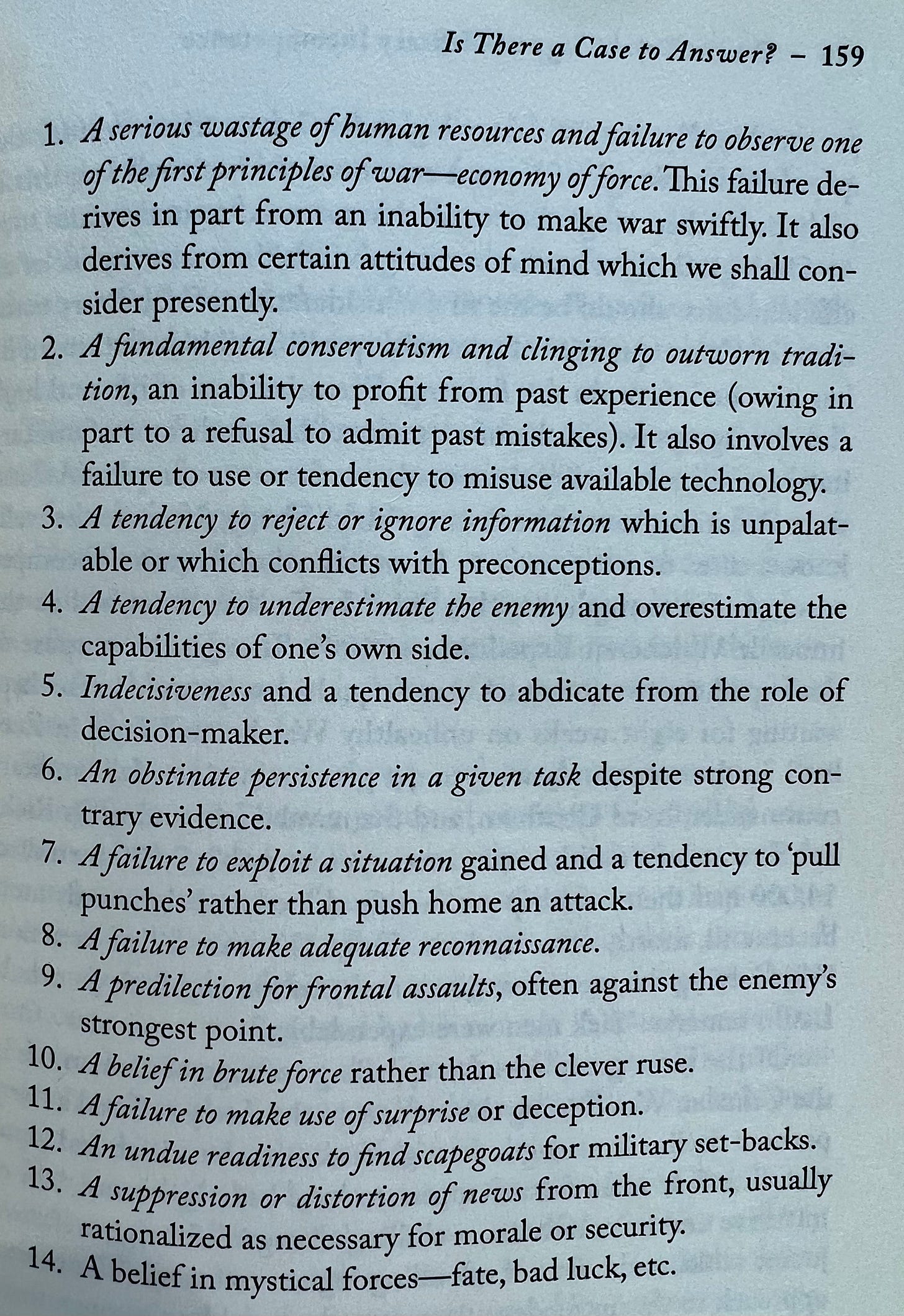The Weekend Whirl: On the Psychology of Military Incompetence by Norman Dixon
This book should be issued to newly commissioned officers
Norman Dixon’s On the Psychology of Military Incompetence should be on every service chief’s reading list. It should also be read widely in the business world. It is that impactful.
I first read this book in 2023. It was suggested to me by a civilian working for the U.S. Air Force. It was published in 1976. I was commissioned in 1998. As I read through this timeless analysis, I thought to myself that this book should have been issued on the first day of NROTC in the Fall of 1994. Why had I never heard of this book? Was there a reason this book was not widely distributed and discussed during my time in the Marine Corps? The more and more I read the more and more I wondered. It seemed so clear to me that senior leaders in the defense bureaucracy would not want this book to be read and understood by junior officers. But maybe that is just an unfounded conspiracy theory.
Conspiracy or not, this book needs to be read and discussed across domains. While the focus is on the psychology of military leaders, it is totally transferrable to leaders in any domain. The lessons are pertinent. And the diligent reader will examine this book with this question in mind:
Is this me? I am not like this, am I?
Why Leaders and Their Teams Should Read It
Norman Dixon’s On the Psychology of Military Incompetence is an eye-opening analysis of why failure occurs in leadership, especially under pressure. It dissects the psychological traits and organizational dynamics that lead to costly mistakes. For leaders and teams operating in high-stakes, VUCA environments, this book is an essential guide to avoiding the pitfalls of rigidity, arrogance, and blind adherence to outmoded thinking.
Five Reasons to Read This Classic
1. Understand the True Costs of Poor Leadership
Dixon breaks down the traits of incompetent leaders and the disastrous outcomes of their decisions, offering profound lessons for any leader committed to self-awareness and growth.
2. Spot and Address Organizational Flaws
In this book we learn how outdated structures, toxic cultures, and bureaucratic inertia can undermine a team’s ability to adapt and succeed.
3. Reject Rigidity, Embrace Flexibility
Dixon illustrates how rigid thinking and a lack of creativity lead to failure, encouraging leaders to foster innovation and open-mindedness.
4. Develop Better Self-Awareness and Emotional Intelligence
The book highlights how personality flaws like arrogance, defensiveness, and fear of failure sabotage leadership. It’s a call to cultivate and value humility and emotional resilience.
5. Apply Lessons Beyond the Military
Although focused on military contexts, the principles in Dixon’s work are universally applicable to business, sports, and any field where leadership under pressure is key.
Call to Action: Read This Book!
If you seek to lead with clarity, adapt under pressure, and avoid the costly traps of incompetence, this book is a must-read. Norman Dixon’s insights will challenge your assumptions and elevate your thinking on leadership.







Power Pairing: Dixon’s On the Psychology of Military Incompetence, and Townsend’s Up the Organization…
Buying this today - I can't believe I have not heard of it before.